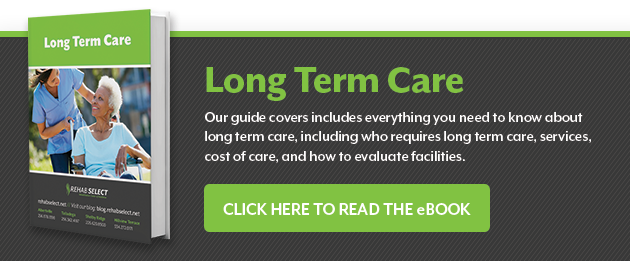
Massive advancements in detecting and treating neuromuscular disorders have been achieved in the last 10 years, especially when it comes to uncovering DNA markers associated with the diseases. Although no cure for neuromuscular disease has been discovered yet, research shows promising progress toward diagnosing and treating these disorders every year.
One of the best treatments available for nerve- and muscle-related disorders is neuromuscular therapy. This type of therapy is built around the most important discoveries scientists have uncovered to this point.
It’s helpful to understand the traits of neuromuscular disorders in order to grasp the benefits of neuromuscular therapy.
Introduction to Neuromuscular Disorders
Neuromuscular disorders are a group of disorders that affect the neuromuscular system. They disrupt the function of nerves or muscles or the communication between the two.
Nerves carry electrical signals between the brain and muscles, which control movement. If a neuromuscular disorder causes nerve cells to break down, you may experience problems like muscle weakness, muscle breakdown, or involuntary movements like spasms.
Some examples of neuromuscular disorders include:
- Parkinson’s disease: breakdown of nerve cells in the brain which impairs movement
- Multiple sclerosis (MS): immune system attack on myelin sheaths (protective layer over nerve fibers)
- Amyotrophic lateral sclerosis (ALS): deterioration of motor neurons causing loss of muscle control
- Muscular dystrophy: genetic mutation that interferes with muscle production
- Spinal muscular atrophy: muscle atrophy caused by motor neuron breakdown
Neuromuscular disorders tend to progress over time and have no cure. However, prompt, targeted treatment can help you navigate the changes in your body and improve the way you move about your life.
Treatment for neuromuscular disorders is highly personalized based on your unique diagnosis, stage of disease, symptoms, lifestyle factors, and more. Your team of medical professionals puts together a comprehensive treatment program to address your symptoms from different angles.
Treatment for neuromuscular disorders typically includes an individualized combination of education, medication, counseling, and neuromuscular therapy.
Education
Education helps both patients and their family members understand and manage a neuromuscular diagnosis. Your providers should equip you with helpful information and resources to help you and your loved ones navigate life with your condition during a therapy program.
Medication
Several types of medication can help you manage the symptoms of neuromuscular disorders. For example, immunosuppressive drugs are often helpful for autoimmune issues, corticosteroids target inflammation, and anticonvulsants may help with pain and involuntary movements.
Counseling
A neurological diagnosis can impact both your physical and your mental and emotional wellbeing. It’s helpful to have psychologists and social workers on your care team to help you cope, adapt, and move through the emotional impact of your condition.
Neuromuscular Therapy
Therapeutic approaches such as occupational, physical, and speech therapy play a leading role in treatment for neuromuscular conditions. These therapies help you keep doing your regular activities.
An Overview of Neuromuscular Therapy
Neuromuscular therapies hold a significant place in your treatment program. The main goal of these therapies is to give you as much control over your daily activities as possible.
A team of occupational therapists, physical therapists, speech pathologists, physiatrists, and rehabilitation specialists provides you with the most effective techniques to manage everyday life.
Occupational Therapy
The role of the occupational therapist is to help minimize disability and optimize the activities you do at home and work. They evaluate your current condition and take your challenges into consideration to determine what to work on.
The type of activities you might work on with an occupational therapist include:
- Occupational activities: skills required for volunteer or paid work
- Self-care activities: tasks related to dressing, grooming, eating, etc.
- Home activities: routines to enhance the ability to cook, clean, budget, and maintain the home
- Leisure activities: techniques to maintain social and recreational interests
A good occupational therapist helps you maintain as much independence as possible and participate in activities you find meaningful. Your therapist also works with you to minimize environmental hazards in your living spaces. This might look like retraining muscles, finding work-arounds for limitations, or using devices to assist you.
Since conditions like MS and Parkinson’s always change and can be punctuated by periods of relapse, an occupational therapist can be a major source of support. Your therapist can help you make adjustments to life along the way.
Physical Therapy
A physical therapist promotes your body’s strength and abilities through a range of training approaches. The goal of physical therapy is to optimize your physical ability.
Common interventions for those with neuromuscular conditions include:
- Resistance training: promoting muscle strength with weights, resistance bands, and bodyweight
- Aerobic endurance: conditioning the cardiovascular system through sustained activity that raises the heart rate (i.e. walking, cycling, swimming, etc.)
- Gait training: training the body to walk with proper form
- Stretching and mobility training: promoting flexibility and better range of motion
- Balance training: promoting stability to reduce fall risk
- Transfer training: learning how to move from one position to another
The role of the physical therapist may change during different stages of your condition:
At diagnosis: education may play a more significant role at the beginning as you and your family learn about your condition and how physical therapy fits into your treatment plan. Your therapist also performs an evaluation to determine your baseline and builds an action plan to begin right away.
During stable periods: your therapist may continue to see you for multiple sessions per week, making modifications along the way. They regularly check in to see how you’re doing and make sure you’re able to keep up with your exercise program.
During relapse: your physical therapist can help you address symptoms during a relapse, such as pain and fatigue. Their top priority is to help you safely return to your previous level of function or make adjustments for your changing needs.
During disease progression: therapy must evolve for your changing needs. Your therapist continues to adapt your training to your physical capacity. They also address new limitations with adaptive equipment and modifications.
Other Therapies
Speech therapy, swallow studies, counseling, and other therapies may also be incorporated into your rehabilitation program. If your condition affects your breathing, speech, or ability to swallow, for example, your medical team can provide the appropriate interventions.
Benefits of neuromuscular therapy
One reason neuromuscular therapy is important is because it can keep you functioning and feeling your best. You may find you move around better and have healthier relationships as a result of your work. Therapy improves the overall quality of your life.
Some of the other benefits you might experience as a result of therapy include:
- Increased independence
- Improved motor function
- Pain relief
- Better circulation
- Maximized strength and stamina
- Prevent exacerbation
- Slower disease progression
Neuromuscular therapy has widespread physical, mental, and emotional benefits to help you get the most out of your life.
Neuromuscular Therapy: What to Look for in a Long-Term Care Setting
If you or a loved one requires neuromuscular therapy in a long-term care setting, your first concern might be about insurance coverage and cost. It’s important to discuss the financial obligation with your family and provider.
Once you find providers and facilities in your network, some other important factors you may want to take into consideration include:
- Convenience of the location and available accommodations
- Whether or not providers specialize in neuromuscular therapy
- The facility’s dedication to treatment methods that are clinically proven
- Access to advanced, comprehensive, holistic treatments at one location
- Reports and outcomes from past patients
It’s important to tour potential facilities, talk to providers, and do research to ensure your family member is in good hands.
Rehab Select is one such rehabilitation center that offers the type of highly skilled, compassionate care to which families entrust their loved ones. We provide the most effective, holistic treatment options from neuromuscular specialists using the most up-to-date equipment across the state of Alabama. If you’d like to inquire about our services, click here to start the process today.




